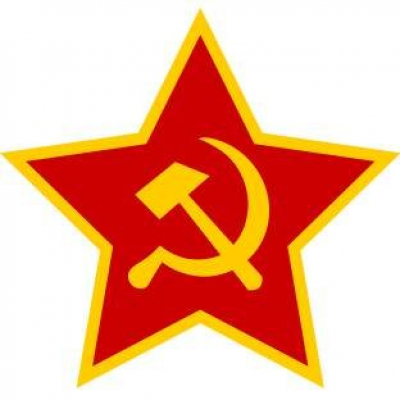Auschwitz concentration camp (German: Konzentrationslager Auschwitz (pronounced [kntsntatsionsla avts] (listen)); also KL Auschwitz or KZ Auschwitz) was a complex of over 40 concentration and extermination camps operated by Nazi Germany in occupied Poland (in a portion annexed into Germany in 1939) during World War II and the Holocaust. It consisted of Auschwitz I, the main camp (Stammlager) in Owicim; Auschwitz II-Birkenau, a concentration and extermination camp with gas chambers; Auschwitz III-Monowitz, a labor camp for the chemical conglomerate IG Farben; and dozens of subcamps. The camps became a major site of the Nazis' final solution to the Jewish question.
After Germany sparked World War II by invading Poland in September 1939, the Schutzstaffel (SS) converted Auschwitz I, an army barracks, into a prisoner-of-war camp.The initial transport of political detainees to Auschwitz consisted almost solely of Poles for whom the camp was initially established. The bulk of inmates were Polish for the first two years.In May 1940, German criminals brought to the camp as functionaries, established the camp's reputation for sadism. Prisoners were beaten, tortured, and executed for the most trivial reasons. The first gassingsof Soviet and Polish prisonerstook place in block 11 of Auschwitz I around August 1941. Construction of Auschwitz II began the following month, and from 1942 until late 1944 freight trains delivered Jews from all over German-occupied Europe to its gas chambers. Of the 1.3 million people sent to Auschwitz, 1.1 million were murdered. The number of victims includes 960,000 Jews (865,000 of whom were gassed on arrival), 74,000 ethnic Poles, 21,000 Roma, 15,000 Soviet prisoners of war, and up to 15,000 other Europeans. Those not gassed were murdered via starvation, exhaustion, disease, individual executions, or beatings. Others were killed during medical experiments.
At least 802 prisoners tried to escape, 144 successfully, and on 7 October 1944 two Sonderkommando units, consisting of prisoners who operated the gas chambers, launched an unsuccessful uprising. Only 789 Schutzstaffel personnel (no more than 15 percent) ever stood trial after the Holocaust ended; several were executed, including camp commandant Rudolf Hss. The Allies' failure to act on early reports of atrocities by bombing the camp or its railways remains controversial.
As the Soviet Red Army approached Auschwitz in January 1945, toward the end of the war, the SS sent most of the camp's population west on a death march to camps inside Germany and Austria. Soviet troops entered the camp on 27 January 1945, a day commemorated since 2005 as International Holocaust Remembrance Day. In the decades after the war, survivors such as Primo Levi, Viktor Frankl, and Elie Wiesel wrote memoirs of their experiences, and the camp became a dominant symbol of the Holocaust. In 1947, Poland founded the Auschwitz-Birkenau State Museum on the site of Auschwitz I and II, and in 1979 it was named a World Heritage Site by UNESCO.
The Workers' and Peasants' Red Army, often shortened to the Red Army, was the army and air force of the Russian Soviet Federative Socialist Republic and, after 1922, the Union of Soviet Socialist Republics. The army was established in January 1918. The Bolsheviks raised an army to oppose the military confederations (especially the various groups collectively known as the White Army) of their adversaries during the Russian Civil War. Starting in February 1946, the Red Army, along with the Soviet Navy, embodied the main component of the Soviet Armed Forces; taking the official name of "Soviet Army", until its dissolution in 1991.
The Red Army provided the largest land force in the Allied victory in the European theatre of World War II, and its invasion of Manchuria assisted the unconditional surrender of Imperial Japan. During operations on the Eastern Front, it accounted for 75–80% of casualties the Wehrmacht and Waffen-SS suffered during the war and ultimately captured the Nazi German capital, Berlin.

1945Jan, 27
World War II: The Red Army liberates the remaining inmates of Auschwitz-Birkenau.
Choose Another Date
Events on 1945
- 23Feb
Manila
World War II: The capital of the Philippines, Manila, is liberated by combined Filipino and American forces. - 23Feb
History of Poland (1939-45)
World War II: Capitulation of German garrison in Poznań. The city is liberated by Soviet and Polish forces. - 25Feb
Turkey
World War II: Turkey declares war on Germany. - 9Mar
Atomic bombings of Hiroshima and Nagasaki
World War II: The first nocturnal incendiary attack on Tokyo inflicts damage comparable to that inflicted on both Hiroshima and Nagasaki five months later. - 30Aug
Douglas MacArthur
The Supreme Commander of the Allied Forces, General Douglas MacArthur lands at Atsugi Air Force Base.

 English
English  español
español  français
français  português
português  русский
русский  العربية
العربية  简体中文
简体中文 